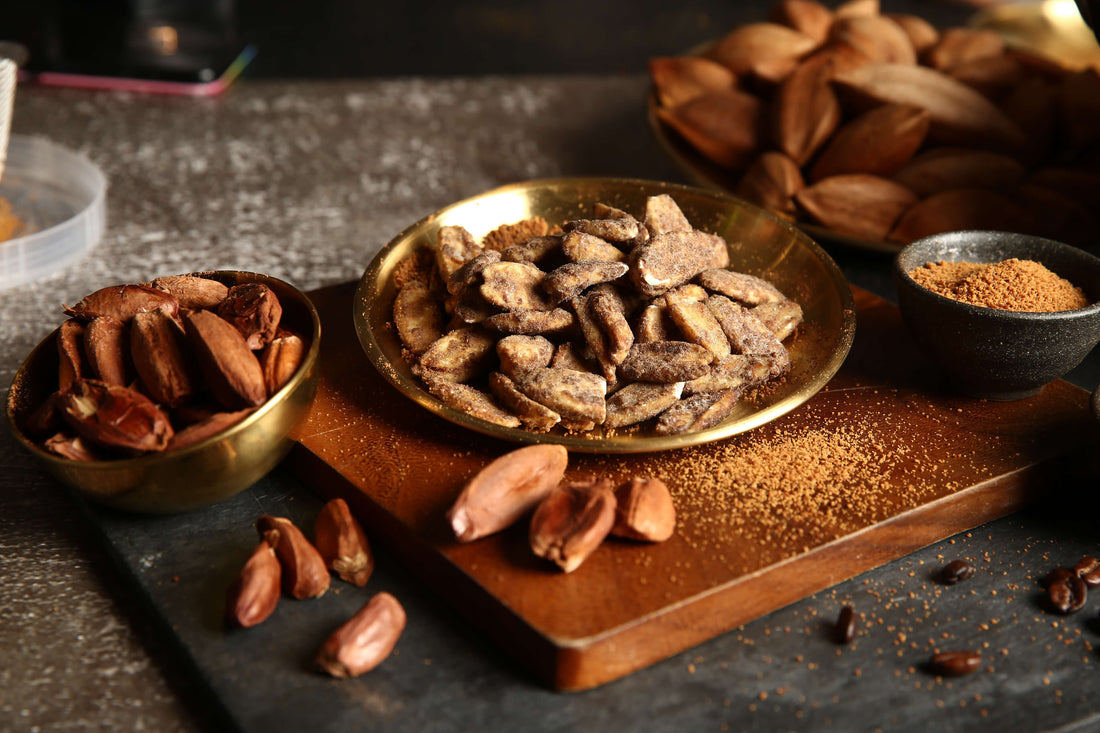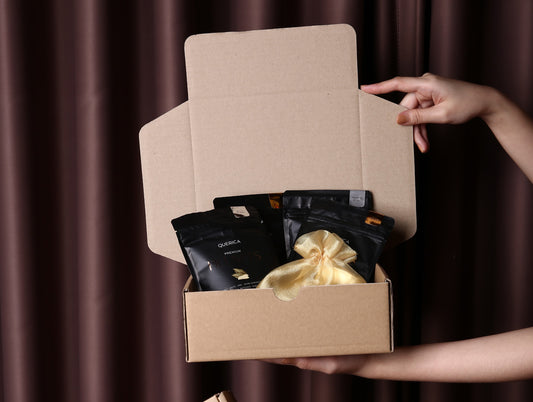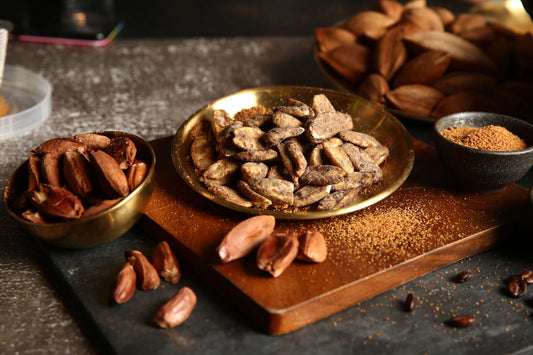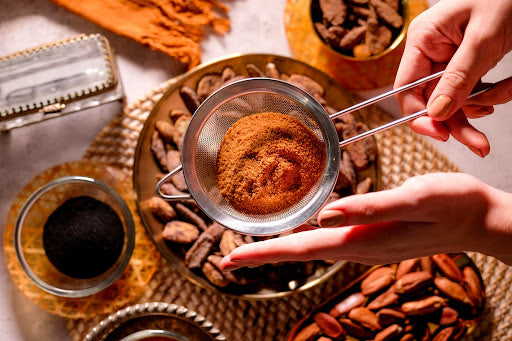For Rica Dakudao Buenaflor, it was passion calling her. Her move to Bicol in the early 2000s (where her husband Carlo is a proud local) is a watershed moment in her personal narrative: treading a path in the elevation of regional, heritage cuisine. From pioneering #BestofBicol (a collective aiming to promote the best of the region) to heading the research and development team of ¿Qué Pasa? (a Spanish-Bicolano restaurant in Naga City), the now Le Cordon Bleu Paris-schooled chef looks back at many afternoons watching their local household preparing among other dishes, the famous laing, Bicol’s passport to global culinary fame. The rest, as they say, is beautiful history.

Today, the eponymous brand of premium delicatessen crafted in Bicol for Filipinos around the world, Que Rica is a family of inspired, empowered individuals. From the community of women in Gainza, Camarines Sur where their bottled products are made, to the Pili nut farmers in Irosin, Sorsogon, Que Rica’s products are crafted in small batches—little gifts that pack passion, community, and authenticity in delicious, novel ways.

Their best-selling laing longganisa marries the tradition of longganisa with the iconic Bicolano staple laing. Made through the use of a local gabi variety called balitaka (sourced through a Bicol-based farmer’s cooperative), ground pork, bird’s eye chili (labuyo) and coconut milk, the laing longganisa is a rich, savory choice that’s made for anyone looking for a flavorful adventure. Try it for breakfast with fried rice and eggs, pair it with your favorite bread as a sandwich, or enjoy it on its own with your favorite beer. Their libas-smoked bacon (libas, or common hog plum which is used widely in the region to introduce sourness to sinigang, and may also be cooked with coconut milk) and chorizo hubad (a flavorful Spanish-style chorizo best with bread or rice) are also perfect for breakfast!

Partnering with the women of Gainza in Camarines Sur, the brand has come up with a way for their customers to enjoy Bicol cuisine anywhere and in turn, providing livelihood to this town which is thirty minutes outside of Naga City. Try Que Rica’s bottled vegetarian laing (keto-friendly and has no shrimp or meat), sinantolan (minced cotton fruit cooked in coconut milk), and taba ng talangka (crab roe, perfect for pasta) as sides.
Their exquisite Irosin, Sorsogon—sourced Pili nuts prove that resilience is a Bicolano trait that the brand embodies. Crafted by nature under severe weather conditions with the region’s mineral-rice volcanic soils and typhoon-battered terrains, Bicol’s Pili nuts are not only the most delicious but also the Earth’s healthiest nut! Que Rica’s premium Pili nuts come in three exciting flavors: Pili nuts with truffle pecorino, with Himalayan salt, and if you’re into sweets: their Pili-Coffee cluster bombs. If you’re into making healthy bowls, trail mixes, or cooking, the skinless Pili nuts work perfectly.
With each of Que Rica’s products packed by hand at the source, the brand ensures a genuine love for food, for their customers, and the community. Que Rica faces the future with a breathtaking vision, not only for the brand, but for the many lives—Bicolanos or otherwise—it encourages, empowers, and transforms.




